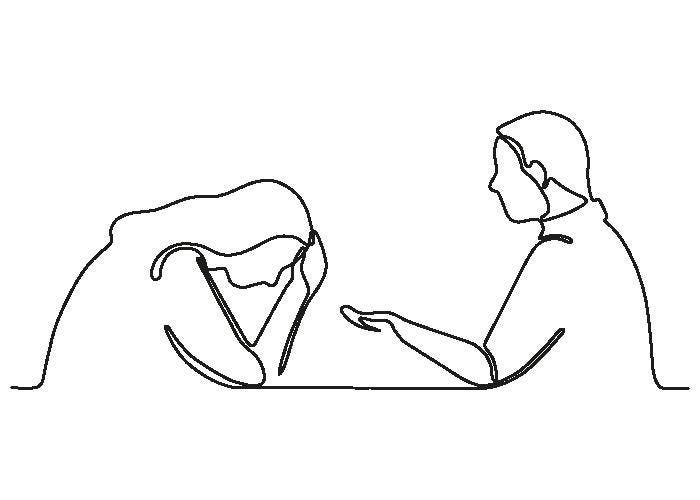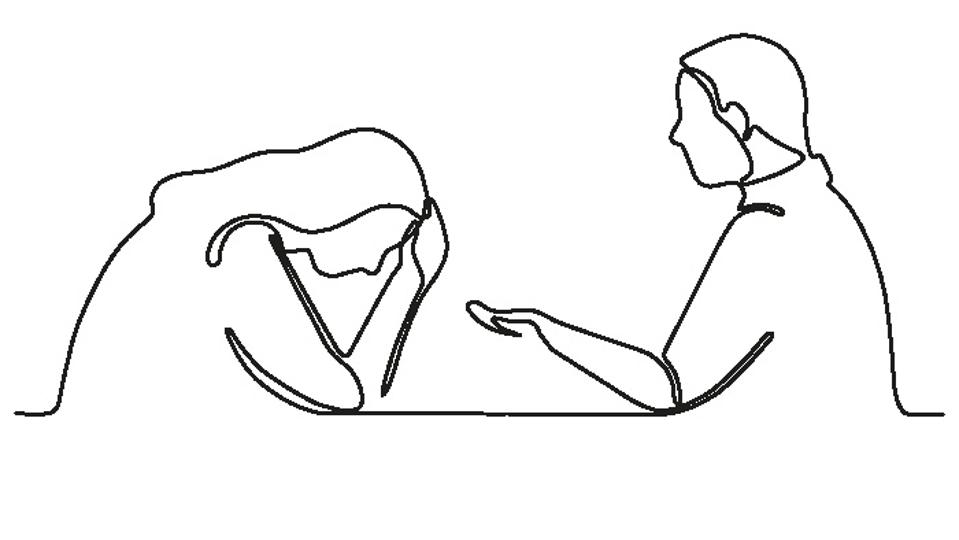2 Early Warning Signs Of Divorce In A Relationship, By A Psychologist

Sometimes, it’s painfully clear when a relationship must end. Here are two signs that a partner is no longer right for you
getty
Falling in love is, at its core, an act of deep trust. We trust another person with a singular belief in our heart — they won’t actively try to hurt us. Many of us make lifelong commitments, usually in the form of marriage, as an extension of this trust.
Sometimes, however, people change. Or, their patterns of behavior only become more apparent with time. Many clients come to therapy wondering, “What changed?” They feel like their partner isn’t the person they married, and this isn’t the marriage they signed up for.
Of course, relationships rarely collapse overnight. More often than not, divorce is a result of smaller, persistent behaviors that chip away at the trust, intimacy and goodwill that once held two people together.
Research backs this up. A 2022 study published in Evolutionary Psychology identified key relationship behaviors that can harm relationships and lead to divorce. While acts like infidelity or physical abuse are obvious deal-breakers to many, researchers found two other patterns that can be equally destructive, yet often fly under the radar until the damage is done.
If you notice these signs in your relationship and they’ve been going on for a while, it may be time to take them seriously.
Here are two signs that a couple is headed toward divorce because of a partner’s harmful actions.
1. A Gross Lack Of Care And Respect
To feel loved is to feel safe, seen and prioritized. The number-one relationship killer the study identified? A lack of care. When a partner consistently feels neglected, unseen or undervalued, it weakens the foundation of a relationship.
This happens when a partner doesn’t ask about your feelings or your day, spends little to no quality time with you, ignores your needs, opinions or preferences, is rarely affectionate or appreciative and avoids physical or emotional intimacy altogether. In fact, emotional neglect can often be as painful as overt hostility.
Research published in the Journal of Divorce & Remarriage found that for many divorcing parents in the U.S., “growing apart” and not being able to communicate were some of the most common reasons for ending a marriage.
Alongside neglect, relationships often struggle under the weight of emotional abuse and controlling behavior — when one partner tries to restrict the other person’s independence or bend them to their will.
A controlling partner may engage in constant criticism or blame, isolate their partner from their support system and monitor every action, show excessive jealousy or even pressure them into decisions they’re not ready for.
Such control robs a person of their autonomy, which is a fundamental right and psychological need in relationships. A 2016 study published in the Journal of Family Therapy even found that when autonomy is restricted in a romantic relationship, dissatisfaction and conflict tend to rise sharply.
When one partner feels controlled, it naturally leads to resentment, lower self-esteem and eventually a desire to escape.
Be it a lack of emotional intimacy or respect for one’s autonomy, these actions are heartbreaking, making many people feel like they don’t matter to the other person. Without actively working to repair these patterns, continuing such relationships only causes pain.
2. Being A Negligent Parent
If you and your partner have children, how each of you treat them can make or break your marriage. The 2022 study found that mistreating shared children or failing to fulfill parenting responsibilities often drives couples toward divorce.
This can take many forms, ranging once again from neglect to abuse. For instance, not spending time with the children, using overly harsh or inappropriate discipline, undermining the other parent’s authority or showing a lack of interest in the children’s lives can make a partner seem like an unfit parent, and consequently, an unfit partner.
From an evolutionary perspective, the survival and well-being of children are core drivers for why people choose to form long-term partnerships in the first place. If one partner fails to protect, nurture or support the children, it can trigger an intense protective instinct in the other — often leading them to question whether the relationship is safe or sustainable.
When one partner is neglectful or harmful toward the children, it undermines trust on the deepest level. It signals not only reduced commitment to the family unit but also a lack of alignment on core values.
Often, a negligent parent will also likely be a negligent partner. How your partner treats you is often how they’ll treat your kids, and if they are aloof, critical, manipulative or punishing, you’ll want to remove yourself and your children from that dynamic.
When a partner consistently neglects your needs, harms those you love most or tries to dominate you, the relationship no longer feels like a safe space. And without safety, emotional intimacy and trust can’t survive.
The longer these patterns go unaddressed, the more they become embedded in the relationship dynamic.
In some cases, when harm is acknowledged and a sustained effort is made to rebuild trust and emotional connection, couples can find their way out of such patterns. However, it’s equally important to recognize when a partner is unwilling to change, or when the relationship has become too unsafe to remain in. In these situations, divorce may not be the easiest path, but it may be the route you need to take to build the life you deserve.
Are you questioning your relationship or truly satisfied in it? Take this science-backed test to find out: Relationship Satisfaction Scale

